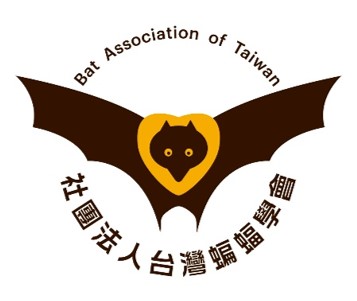蝙蝠研究
2003_台灣食蟲性蝙蝠之隱孢子蟲調查與堆肥處理對卵囊之影響_林渝翔
出版年份:2003
研究生:林渝翔
分類:碩士論文
題目:台灣食蟲性蝙蝠之隱孢子蟲調查與堆肥處理對卵囊之影響
Title:Survey of Cryptosporidium oocysts in insectivorous bats in Taiwan and the influence of compost heaps treatment on Cryptosporidium oocysts.
摘要:
隱孢子蟲(Cryptosporidium sp.)屬於原蟲性寄生蟲,是在脊椎動物消化道寄生的人畜共通感染性寄生病原,造成宿主下痢症狀為主。本研究針對台灣食蟲性蝙蝠做一系列寄生蟲檢查,發現其中24處棲所洞穴的糞便都可分離出隱孢子蟲卵囊。針對野外採集的台灣葉鼻蝠進行每日糞中隱孢子蟲卵囊數量變化的長期監控,發現糞中可檢出數量較多的隱孢子蟲卵囊,證實台灣葉鼻蝠受隱孢子蟲感染。
於調查過程中,台中縣一處蝙蝠夜間棲所旁有3場水鹿養殖場,每場都有鹿隻受隱孢子蟲感染,其中一場還設有一傳統堆置的小型堆肥場,經抽樣檢查可檢出隱孢子蟲卵囊,與另外12場現代化高溫發酵堆肥場比較,顯示傳統糞便堆置方式無法有效分解隱孢子蟲卵囊。
為瞭解水鹿受隱孢子蟲感染情況,針對中部地區水鹿飼養場進行抽樣,採集17場,76隻水鹿的糞便,66隻水鹿糞便可檢出隱孢子蟲卵囊,每場都可檢出隱孢子蟲卵囊,分析其原因可能是糞便與草料混在地上造成伺機感染。台中縣與南投縣境內牧場所產生的禽畜糞便,大都經私下堆置處理,當糞便中含有隱孢子蟲卵囊時,依文獻報告卵囊可經食糞甲蟲或蒼蠅等昆蟲攜帶,可能藉由食蟲性鳥類與動物食入,經消化排泄因而成為隱孢子蟲發散源,造成隱孢子蟲伺機感染其他動物。
Abstract:
Cryptosporidium spp., the zoonotic infective parasitic protozoa in the digestive dust of vertebrates, is responsible for the clinical symptom of diarrhea. This study aims at a series of examination of parasites in insectivorous bats and Cryptosporidium oocysts were examined in the fecal samples from 24 bat habitats. After long observation of daily feces of the wild caged bats, discovered the existence of Cryptosporidium spp, which indicates these bats were infected.
During the survey, the oocysts of Cryptosporidium spp observeed in the feces of 3 deer farms near a nocturnal bat habitat in Taichung county were presented positive for Cryptosporidium infection. The sample from a traditional compost heap in the deer farm was also examined as positive. Compared with the result of those from 12 modem compost heaps, the temperature of traditional compost heap is too low to destroy the Cryptosporidium oocysts.
To survey for infection of deer by Cryptosporidium, the feces of deer from 17 daily farms was examined in central Taiwan. Among the 76 deer examined, 66 (86.8%) are observed to be positive for Cryptosporidium infection respectly. The cause may be mixture of fodder with feces. Since the feces of farm animals in central Taiwan have been stocked confidentially, those compost heap containing cryptosporidium oocysts may be carried by the wild filth flies, dung beetles and other insects which will be eaten by insectivorous animals and digested. Therefore, Cryptosporidium oocysts may in this way spread infection.
